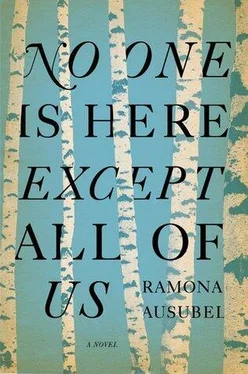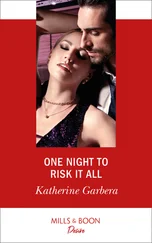Her eyes tunneled into mine, trying to root me out. “You want to know what I think?” She paused, sucking at her chicken bone. “God is a spineless pansy. Bless him.” The woman shook her napkin out. Grease had made it almost transparent. With it she polished her cane. I could not figure out what to do with my hands. I scratched my cheek, rolled my sleeve and made a fist within the space of a few seconds. The woman glared at me, angry that I appeared to be a worthless pupil. Still, she continued, “I know he exists, because — look around. Only God could think of a place as deranged and gorgeous as this. But the problem is that he won’t tell us yes or no. He’s very impressionable. We say, Everyone has to wear a fancy hat and pray on Sunday and he says, All right, let’s see it. We say, No one can eat meat from a pig and he says, Good idea. Someone else says, Everyone has to eat meat from a pig and he says, Fine with me. Someone says, Let’s kill everyone with brown hair and he says, Sure, why don’t you try it out.”
The woman examined the sheen of her cane. The handle bore the shape of a rabbit’s head, long ears pointed back. It looked like it was sniffing the air for a predator. I waited for her to give me some kind of answer. Tell me what to believe in. “God just likes a good story,” she grunted, and then her head fell forward and she went to sleep. Her cane rolled back and forth.
The woman snored. Her cane fell onto the floor and I picked it up to pet the rabbit. I could practically feel it tremble at my strange touch. “I won’t hurt you or try to be your friend,” I said, placing it back on the woman’s lap. The rabbit rolled, looked at me, looked away.
Together with me, as the fabric of my seat, the planks of the floor, the tracks beneath and the hot, rolling wheels, was the fact of each beautiful, terrible thing. I could still feel everyone I had ever loved — the misery of their absence and joy of their lives on either side of a scale, each trying to tip it. Past the mountains a city no longer stood. A snaking river filled with blood. Yet the grass was as green as it could be, and the water as blue and the sky as clean and smokeless. Above good or bad, our God must have admired contrast.
The stations and their names were a scramble of letters. With only the occasional station light filling our compartment, we rocked through the dark. The old woman snorted awake, smoothed her hair. She searched for something in her coat pocket, scratched a match to life. Her face in the firelight was jagged and disturbed. With her free hand she tried to unlace her shoe. The match burned down, the woman yelped quietly, blew it out and lit another.
“So?” I asked.
“So?” She struggled with a knot.
“What do we do?” I took the match from her so she could use both hands.
“Thank you,” she conceded. She spread her toes like a fan, rolled her ankles. “Try to be kind, try to have fun. Enjoy more chicken. That’s it. On we go into the night.”
Two scrub-cheeked young soldiers woke me in the morning. The old woman was gone. Had someone met her at the train station? I wondered. Had she simply disappeared into the darkness? What kitchen table or graveyard had she been journeying to? “Good morning,” I said, and the soldiers studied my papers.
In the next station we had time to get out and stretch. I ate a long roll of bread. I went outside and stood on the marble steps. I could see the tops of huge buildings over the trees. Their rounded and pointed heads reflected the sun. They shot the sun back in stabs, which sliced the sky. A policeman came up to me and asked for my papers. I did as I always did: answered all the questions, tried to look Russian. Do I die here? I asked myself. Is this where I die? But the guard gave the papers back and went on. There were birds on the steps, big black birds dropping and picking up scraps. Their eyes were yellow and sharp. I tossed them part of my bread and they tore it, hopped toward me, stared at me. I saluted them but the blackbirds stood still at my feet, waiting for more of my kindness.
And inside? Inside me? The stew was a tiny form. The form nested, warm, and the form was you. You got right to work growing a heart. But I still did not know you were there. I sat, I watched the world speed past, and both our hearts rumbled away inside, clanging their cages.
You made yourself a hole of a mouth in order to say later, “What is that there, what kind of tree? The one with the shaking leaves?” You made tunnels for ears so that I could tell you, “Cottonwoods. There must be a river.” I ate bread and we were both fed by it.
What mattered was not that around the train there were low green hills with yellow flowers cupped and shaking. What mattered was not that we clanked over bridges with rivers tumbling underneath, which I could almost hear. What mattered was not that there were church steeples or brick towns or even far-off mountains ahead. Instead, it was the miles behind that counted. There was a river now between my home and me. There was a brick town and a church steeple. There was a man riding a bicycle, a field full of unbloomed sunflowers. There were so many blades of sharp grass and tracks of dry dirt and puddles and trunks of decapitated trees between us. Cities erupted from the plains and craned their necks to see the growing distance between here, now here, now here and home. Even this field, even this stream, even that fallen-down wall that does not keep sheep in were between me and home. Even the sheep who jumped over it. Even the ants crawling crazy circles over the dirt, carrying it down into their rooms, standing on one another’s polished backs.
Everything was between. And yet, something else kept being ahead.
Because the night was clean and they were hidden inside it, Igor and Francesco sneaked out to the night-dark sea — past shut-up windows where the sleep of war-frightened people was being slept, past the animals whose job it was to die in time for dinner and to give milk not for their own babies but for someone else’s. Igor and Francesco took their clothes off, every last scrap of the made world, and lowered themselves into the cool brine. Their bodies were surrounded by halos of glowing phosphorus. The sound of stones rolling over one another’s backs at the bottom and the sound of wind shucking the surface of the sea. Igor put his head under. Francesco watched the halo of his friend below him, then looked at the real, perfect stars overhead. Each single dot was entirely distinct, alone against the black question of the sky.
“Am I really free?” Igor asked.
“You are really free.”
Igor thought about the possibilities for this. He could go in search of his family, who everyone seemed to believe must be dead. Dead — it was too big a word. But when he looked around him, he could not fathom where in that dark night I could be or how, no matter his care or diligence, we would ever happen to meet on a road, in a square, under a tree. Just because a man sets out does not mean he finds. Igor thought about trying to learn to love Carolina, trying to replace my features, glue new memories over the old ones. He could be a father again. He thought about the births of his two sons, meeting those achingly small bodies for the first time, shaking their hands and promising to protect them. Had he managed to do that, to protect? Probably not, not from here, this far away. He could not bear to leave another pair of children in the early morning, their entire bitter lives waiting at the door, snarling. He and Francesco could move into Francesco’s mother’s house and eat themselves fat, eat until they had to be rolled out into their graves. Or he could stay where he was, his own bed and his own sink and his own window. Bars to keep him in and bars to keep everything else out. His own personal guard. He kicked his legs in the cool water, watched them light up.
Читать дальше












